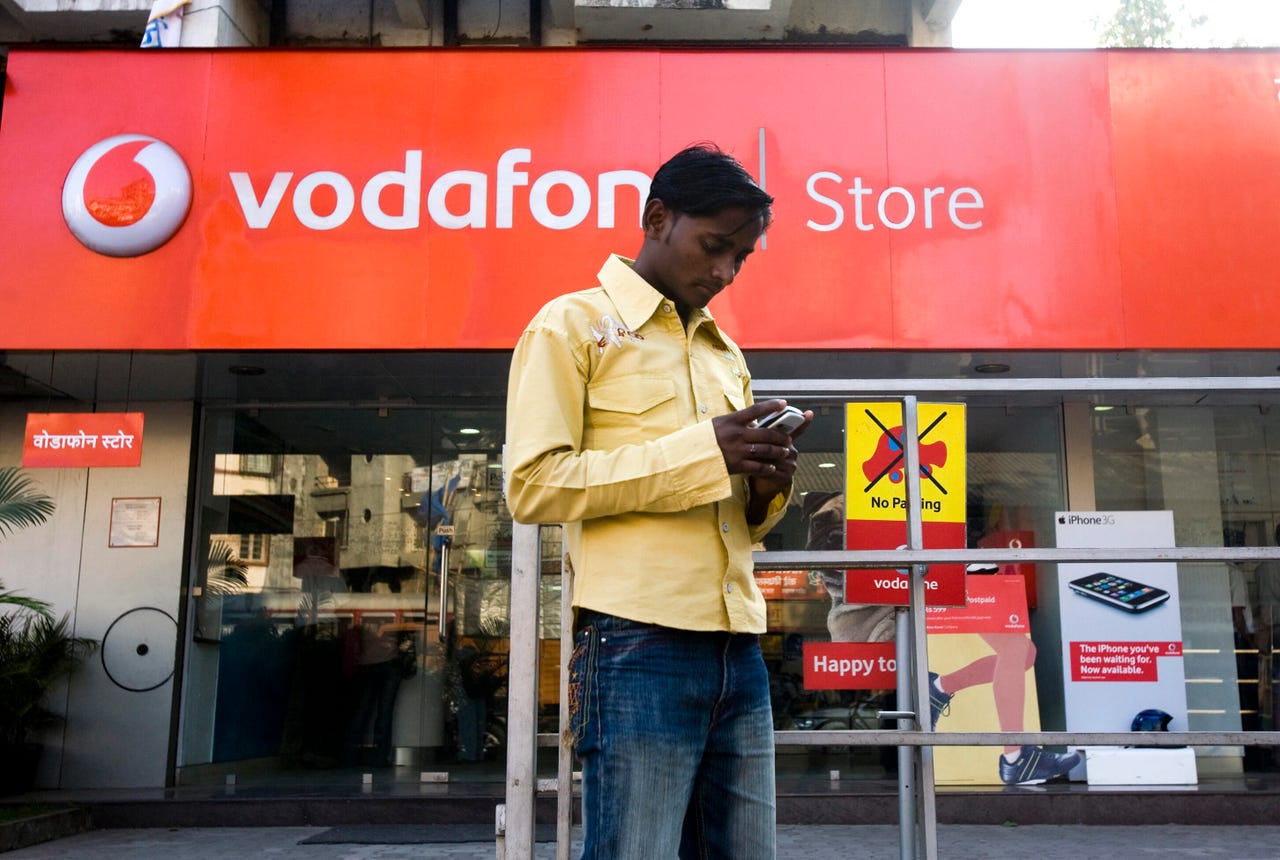































 Image: Getty Images
Image: Getty Images As I had written a few weeks ago, Vodafone has been on life support for the last few years with an accumulated debt close to$30 billion and prospects that look bleaker by the minute.
The cause of this monstrous bill is not the enterprise's profligacy, as you would expect, but serial and wanton mugging by a government that has long seen telecom outfits and their desperate scramble for spectrum every cycle as fattened calves worthy of intermittent slaughter.
It was clear that Vodafone's death knell had sounded. Its part-owner, industrialist Kumaramangalam Birla, who owns around 28% of the firm, pretty much thought so when he resigned from the company board and dispatched a letter to the government asking it to take over his shares.
That wouldn't solve anything, however. Both state-owned BSNL and MTNL are bankrupt, grossly inefficient, money-bleeding organisations that would do nothing for Vodafone, never mind the culture clash.
Now, a week or so later, a much anticipated telecom relief package has arrived. Consequently, there has been much speculation about the revival of the moribund industry, which seemed to be inexorably headed for a duopoly with Reliance and Airtel battling it out.
Here's how the crippling debt stacks up.
Money owed by Vodafone -- and its other lesser-burdened telecom cousin in similar hot water, Bharati Airtel -- comprise of a few different parts.
One part is an egregious tax slapped onto Vodafone retroactively by the previous Congress government when its finance minister decided that the merger that had taken place five years prior in an offshore location was not kosher.
Then, there was the tussle over what comprised telecom revenue, which had to be shared with New Delhi as per its 1999 telecom policy which, much to industry's chagrin and vociferous protests, should include things like interest income and sale of assets. In other words, non-telecom operational revenue which it called Adjusted Gross Revenue (AGR).
Add it all up, slap on interest at 8% for the past 13 years or so, as well as deferred spectrum payments -- which is the only way companies have been able to afford buying spectrum -- and you have a grand total of$30 billion for Vodafone alone.
Now, the government's telecom package promises momentary relief, but actually delivers little for the long haul.
The concept of retroactive taxation has been finally given the axe through a Bill but that does little to ease the pain that the law has already given to the industry. This is because AGR dues that have added up so far get a moratorium of four years for both Vodafone and Reliance -- but the deferment does not escape the scythe of interest and penalties for the four years.
Vodafone does get more time to pay for deferred spectrum purchases in past auctions and relief from bank guarantees and past dues, around$4.3 billion, but its enervated financial condition today may not allow it to enjoy this temporary liquidity.
The fact is, over the last two years, Vodafone's customer base has plumetted by a third and chosen to decamp to either Airtel or Reliance.
Average Revenue per User (ARPU), the marker that signals whether telecom outfits are making enough money per customer to stay afloat and turn a profit has also been woefully small -- above Rs300 prior to Reliance's entry but barely half of that now.
This means Vodafone cannot even generate enough cashflow to pay its quarterly interest obligations for its debt, let alone invest in more infrastructure for its 4G and 5G networks, which it will need to stay in the game.
While those lost customers will in all likelihood never come back, the prospect of getting into yet another bidding war for 5G spectrum in the near future with borrowed money for a severely weakened company will make even the hardiest of Vodafone's senior management nauseous.
Yes, India still has to wire another 400 million people or thereabouts, and demand for data is at an all-time high as India goes digital.
So, yes, theoretically the market is still growing and there's money to be made.
However, for Vodafone to operate in future climes will mean having its parent in the UK pump more money into it, and competing with Jio's continued price wars. Vodafone UK holds a 44% stake in its Indian subsidiary.
Yet, Group CEO Nick Read has categorically stated that he is not "going to throw good money after bad" anymore. Considering how many times Vodafone has been mugged by the government to finance its fiscal imbalance, global investors looking for opportunities in the Indian telecom market may just feel the same way.
Still, Vodafone's India CEO remains highly optimistic.
"Vodafone Idea will exist. We will compete. We will survive and thrive," Vodafone India CEO Ravinder Takkar said in an interview on Wednesday. "We were engaged in fundraising for several months. We have investors, international and domestic, who have shown interest in investing in Indian telecom industry," he added
He will need to find those who don't think that India is the "most painful market to operate a telecom", per the recent words of Deutche Bank analysts, to prove him right.
 Etiquetas calientes:
tecnología
Los teléfonos inteligentes
Etiquetas calientes:
tecnología
Los teléfonos inteligentes